2016 Giants of Science
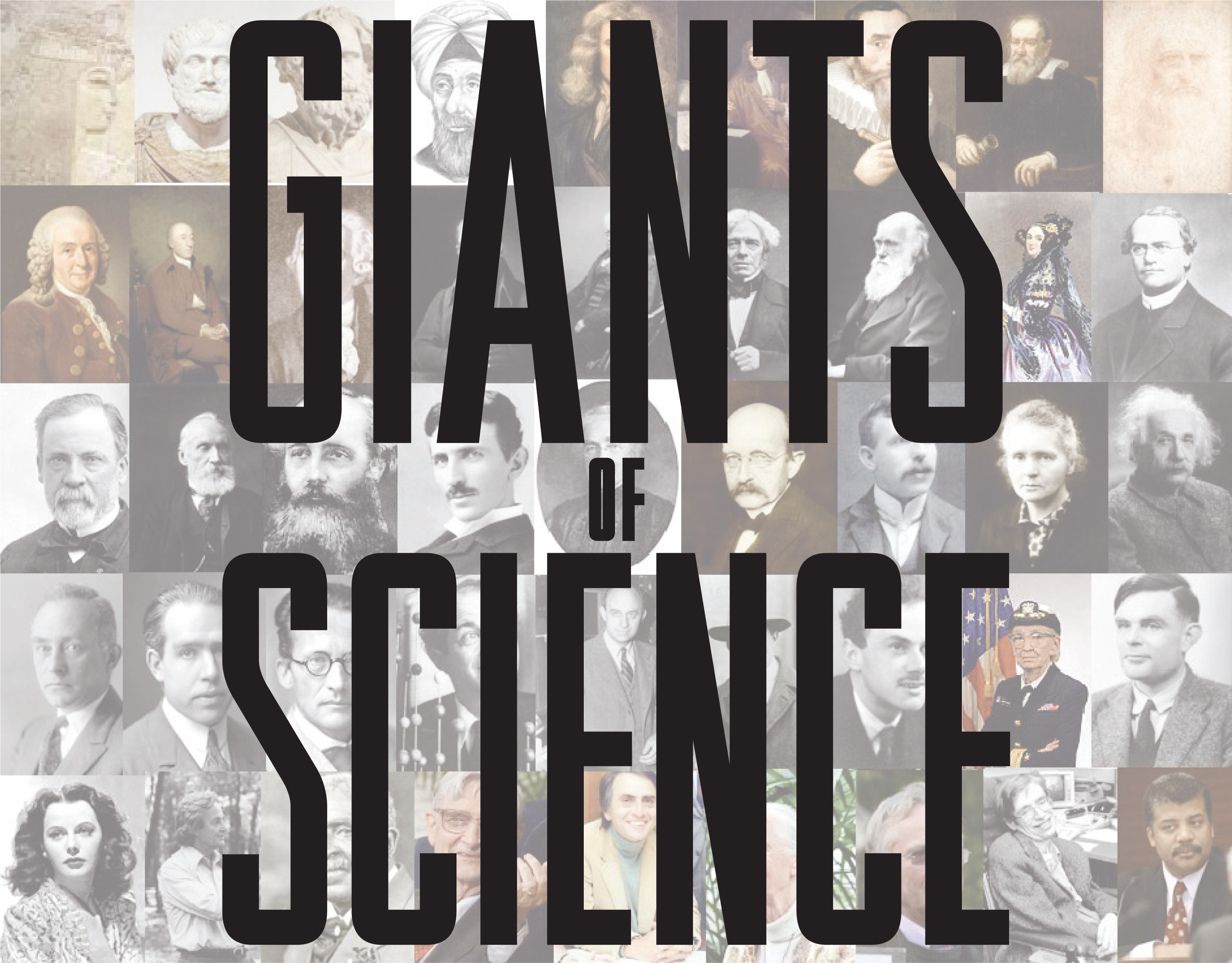
Directed by Laura Backley
Giants of Science is a collection of 17 entertaining and inspiring songs highlighting the lives and work of great scientists and mathematicians throughout history who have shaped our understanding of the world. Written by ten contemporary composers, including David Bass, Michael Ching, Andrea Gaudette, David Haines, Ruth Hertzman-Miller, Daniel Kallman, Dan Kohane, Bruce Lazarus, Tim Maurice, and Lauren Mayer, Giants of Science was performed by the NCFO Science Festival Chorus as part of the tenth annual Cambridge Science Festival, April 16-24, 2016.
The Science Festival Chorus comprised more than 50 adults and children (ages 6 and up) from Cambridge and surrounding communities, as well as about a dozen guest artists from Haggerty School in Cambridge. The three free performances during the week of the Cambridge Science Festival included:
- Saturday afternoon April 16, 3:00 pm - Broad Institute, 415 Main St., Cambridge
- Sunday evening, April 17, 6:00 pm - Cahners Auditorium at the Boston Museum of Science
- Sunday afternoon April 24, 3:00 pm - Peabody School, 70 Rindge Ave., Cambridge
A complete set of lyrics from Giants of Science can be found here.
See below for demos of the music from Giants of Science and information about the composers and lyricists who wrote it. The performance audio and video (well, more of a slide show, really) is included for some of the songs and will be for all of them soon.
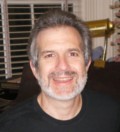 |
David Bass is a composer who feels he needs no introduction. Many who have been introduced to him feel the same way. |
Giants of Science features one song by David Bass:
- It Would Have Been Enough (world premiere) - This klezmer paean to German-born theoretical physicist Albert Einstein (1879 - 1955) is based obliquely on the Passover song Dayenu, which appears now and then in the piano accompaniment.
[performance audio/performance video/demo]
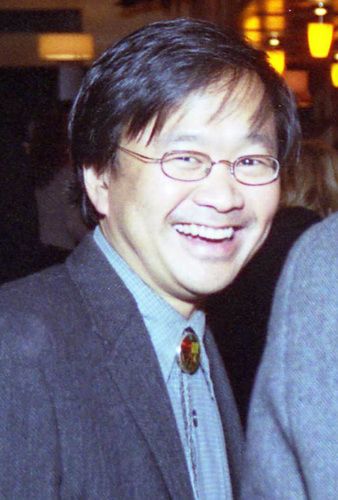 |
Michael Ching is a composer and conductor, who is best known nationally for his innovative operas. His most recent opera, Speed Dating Tonight! has already been performed over 25 times. His a cappella opera adaptation of Shakespeare’s A Midsummer Night’s Dream (2011) was released on Albany Records. His newest project, Alice Ryley, A Savannah Ghost Story, had its premiere in October 2015. He is music director of Nickel City Opera in Buffalo, NY. Michael lives in Iowa and would enjoy hearing from you about his pieces at MrBillow@juno.com. |
 |
Jennifer L. Knox’s fourth book of poems, Days of Shame and Failure, was |
Giants of Science features one song by Michael Ching and Jennifer L. Knox:
- Ada Lovelace (world premiere) - The only legitimate child of poet George Lord Byron, English mathematician and writer Ada Countess of Lovelace (1815 - 1852) is regarded as having written the first ever computer program.
[performance audio/performance video/demo]
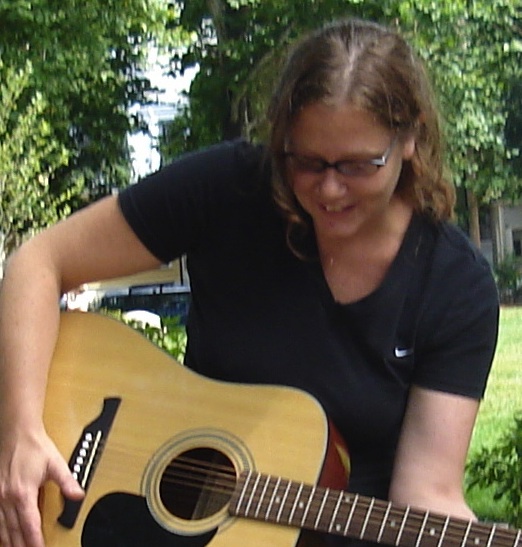 |
Andrea Gaudette has been playing music professionally since age 14 when |
Giants of Science features one song by Andrea Gaudette, plus a song written by Andrea in collaboration with her third-grade students:
- Madame Marie Curie (world premiere) - Polish-born physicist and chemist Marie Curie (1867 - 1934) was the first woman to win a Nobel Prize and the first person to win two. Element 96, Curium, is named in honor of her and her husband, Pierre (1859 - 1906).
[performance audio/performance video/demo] - Galileo (world premiere) - Andrea Gaudette guided her third grade students at the Haggerty School in Cambridge as they wrote this song honoring Italian astronomer, physicist, engineer, philosopher, and mathematician Galileo Galilei (1564 - 1642). Galileo's public embrace of Copernicus's heliocentric model of the the solar system was judged to be heresy by the Roman Inquisition, and he spent the last nine years of his life under house arrest.
[performance audio/performance video/demo]
 |
Trained at Bristol University, London's Guildhall School, and Banff School |
Giants of Science features one song by David Haines, plus a collection of songs written by David in collaboration with young children during his songwriting workshops in the Cambridge Public Schools:
- Mr. Darwin, Mr. Wallace, Mr. Matthew - The journeys of English naturalist and geologist Charles Darwin (1809 - 1882) aboard the Beagle are celebrated, appropriately enough, by this sea shanty. Working with British naturalist, explorer, geographer, anthropologist, and biologist Alfred Russell Wallace (1823 - 1913), Darwin established that all species of life descended from common ancestors, evolving through a process of natural selection.
[performance audio/performance video/demo] - Songs written with young school children (world premiere) – Every year David Haines works with about 50 classrooms in the Cambridge schools, guiding the students as they write a song about some aspect of their science curriculum. These are some songs about specific scientists throughout history and what it's like to do research:
- To Be a Scientist - The scientific method, from formulation of a hypothesis to publishing your results
- Newton's Laws - It was Isaac Newton (1643 - 1727) who wrote, "If I have seen further, it is by standing on the shoulders of giants."
- Through My Magnifying Glass - Without tools to assist observation, a scientist is limited indeed.
- Unsung Hero - Without Michael Collins (1930- ) staying in the Lunar Orbiter, Neil Armstrong (1930-2012) and Buzz Aldrin (1930- ) never could have been the first men to walk on the moon.
- Strobe - Legendary engineer Harold "Doc" Edgerton's (1903-1990) exhibits of strobe technology still grace the hallways at MIT.
- What Happened to the Marigolds? - As we saw with Michelson and Morley, negative results don't necessarily make an experiment a failure.
[performance audio/performance video/demo]
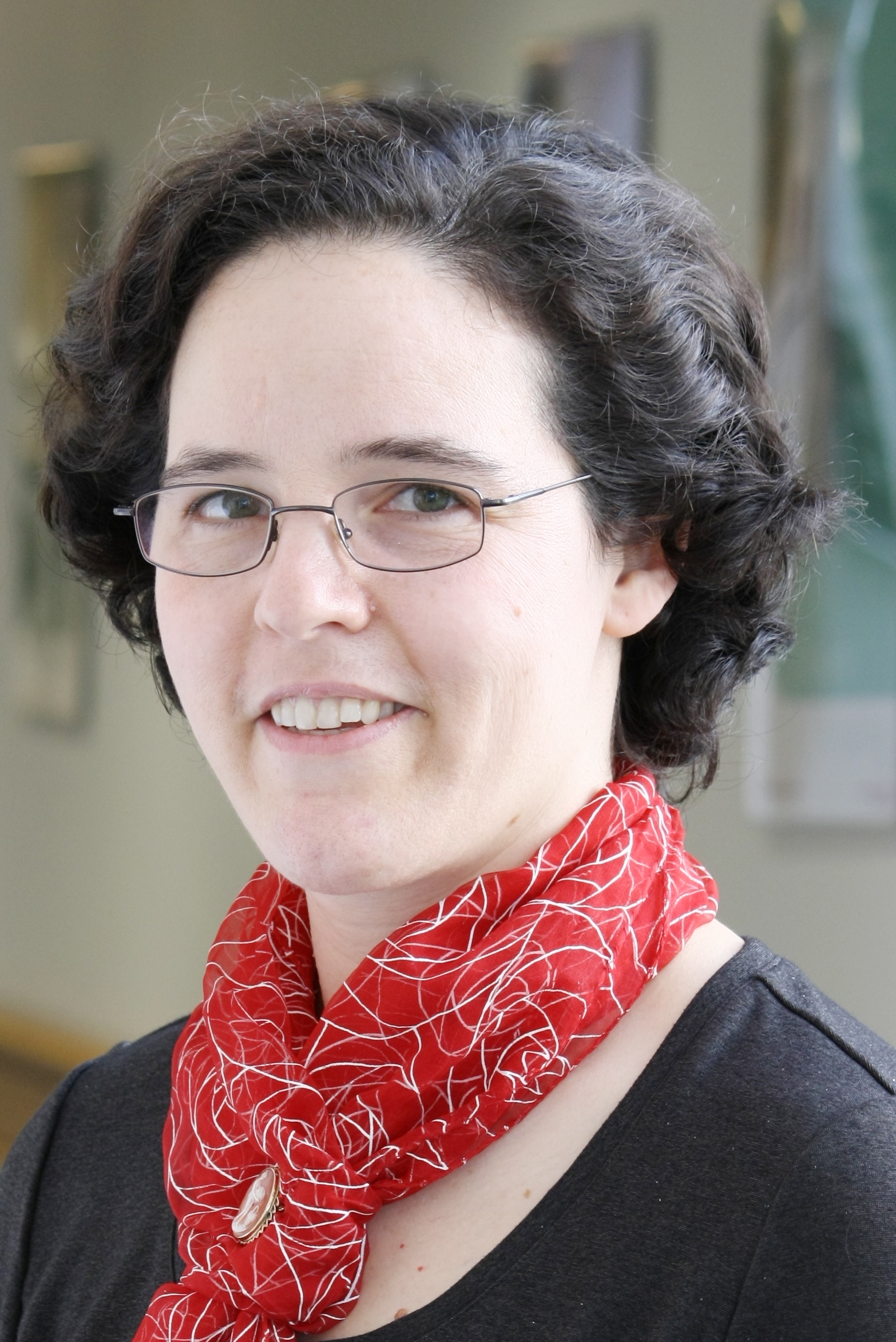 |
Ruth Hertzman-Miller is a Boston-area |
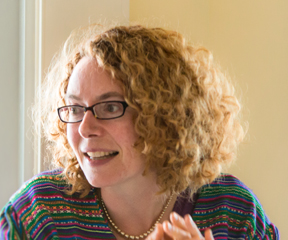 |
Meg Muckenhoupt works in Communications at |
 |
Joanna Brown is a physician and writer living in |
Giants of Science features one song by Ruth Hertzman-Miller and Meg Muckenhoupt:
- The Ballad of Michelson and Morley – American physicists Albert Michelson and Edwin Morley set out to detect the substance through which light flows, but their elegant experiments found no evidence of "aether" at all. Negative results can be earthshaking as well, and in 1907 Michelson became the first American scientist to win a Nobel Prize.
[performance audio/performance video/demo]
Giants of Science features one song by Ruth Hertzman-Miller and Joanna Brown:
- Peanut Man (world premiere) - A bluegrass-folk fusion song paying tribute to American botanist and inventor George Washington Carver (c1861-1943), who researched and promoted alternative crops to cotton, such as peanuts and sweet potatoes, helping poor farmers provide their own food and other products to improve their quality of life.
[performance audio/performance video/demo]
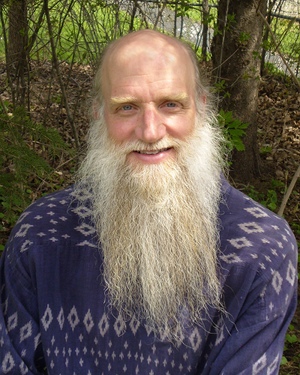 |
Daniel Kallman's compositions for orchestra, winds, and choir are widely published and performed across North America, Europe and East Asia. His steady stream of commissions includes music for worship, theater, dance, and the young musician. Kallman has composed for the National Symphony Orchestra, the Air Force Academy Band, the Hong Kong Children's Choir, the Minnesota Orchestra, A Prairie Home Companion, and a wide variety of vocal and instrumental ensembles. The principal publishers of Kallman’s music are Morning Star Music (church choir), Hal Leonard (choral), Shawnee/Mark Foster Press (children’s choir), Boosey and Hawkes (winds and choral), and Lauren Keiser Music (orchestral). All of Kallman’s works are catalogued on his website. |
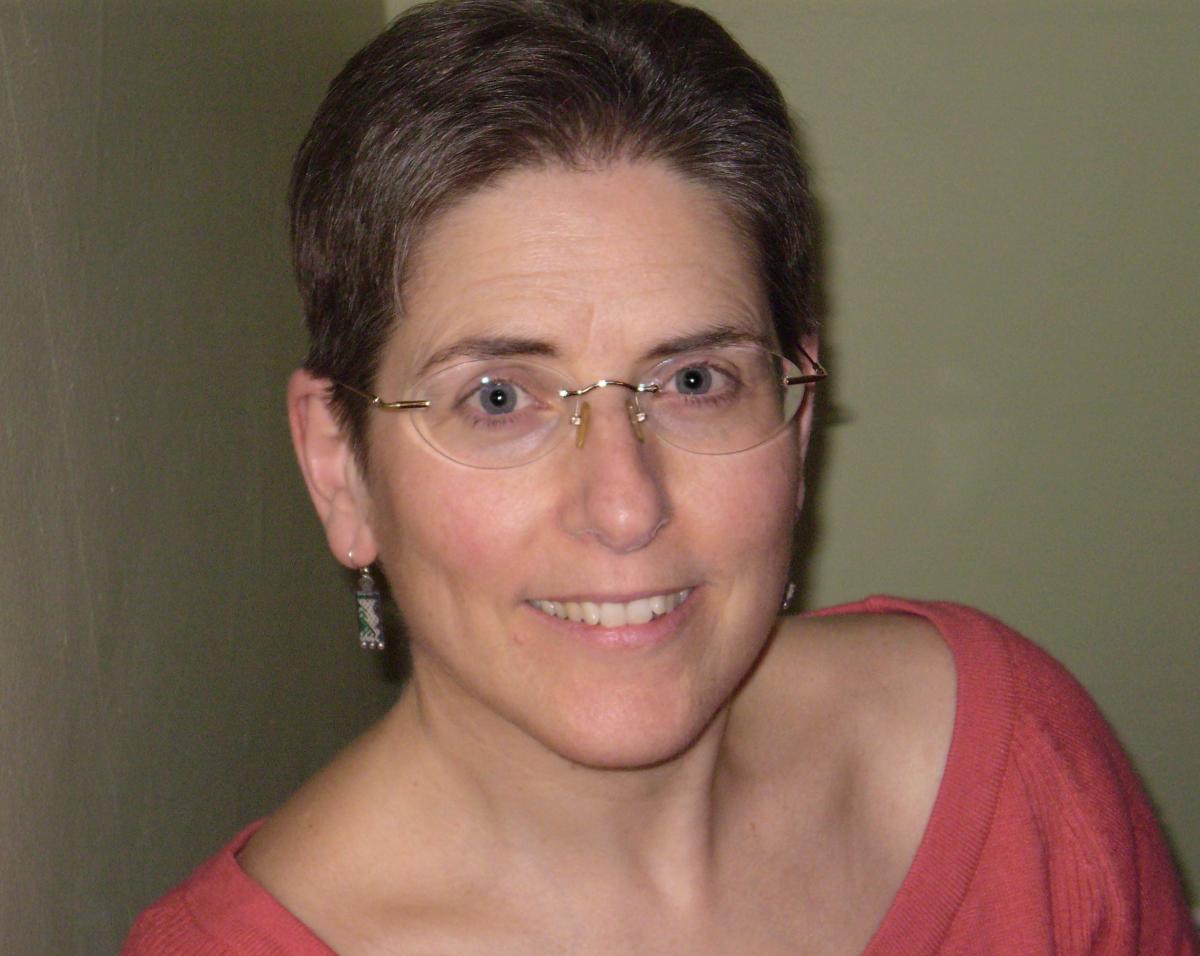 |
Christine Kallman is a playwright, lyricist, poet and musician. Her work has been supported and produced by arts organizations, theaters, schools, colleges and churches. She has taught music and theater to young people in the classroom, theater camp, and private studio. Among her works are full- length plays, one-acts, and musicals, including Donata’s Gift, a holiday musical based on the Italian legend of Old Befana. Her most recent play, A Falling Out, is set at the time of the Cuban Missile Crisis and was presented last spring in a staged reading supported by the Southeastern Minnesota Arts Council through a McKnight Artists Grant. In addition to writing song lyrics, Kallman has received several commissions to write hymn texts. |
Giants of Science features two songs by Daniel and Christine Kallman:
- In Praise of Emmy Noether (world premiere) - Such a lush anthem as this is a fitting tribute to German-born mathematician Amalie Emmy Noether (1882 – 1935), whose contributions to abstract algebra and theoretical physics are unparalleled. Accompaniment orchestrated and realized by Tim Maurice.
[performance audio/performance video/demo]
- Schrödinger's Cat (world premiere) - Erwin Rudolf Josef Alexander Schrödinger (1887 - 1961) was a Nobel Prize-winning Austrian physicist whose wave equation revolutionized quantum mechanics, but it was his silly thought experiment, superimposing quantum uncertainty on a macroscopic feline, that has earned him the widest fame.
[performance audio/performance video/demo]
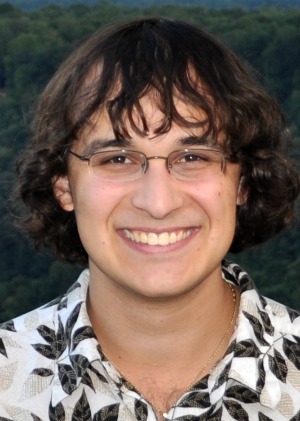 |
Dan Kohane's music ranges from serious concert |
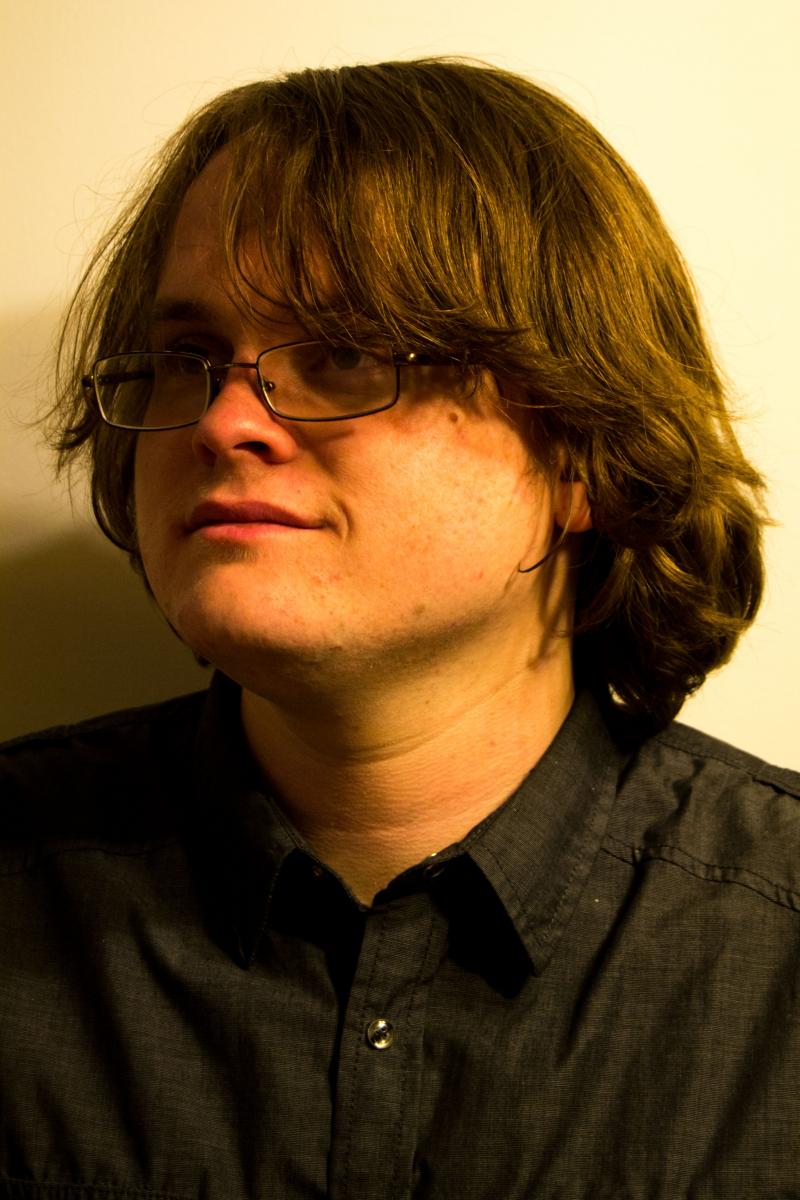 |
Colin Killick (b. 1990) is a lyricist and playwright |
Giants of Science features one song by Dan Kohane and Colin Killick:
- Sparks Fly (world premiere) - In the late 19th century, American inventor Thomas Edison (1847 - 1931) advocated direct current electrical power distribution, while Serbian American inventor, engineer, physicist, and futurist Nikola Tesla (1856 - 1943) lobbied for alternating current. Tesla's approach, backed by Westinghouse prevailed, while Edison's company, General Electric, was hardly heard from again.
[performance audio/performance video/demo]
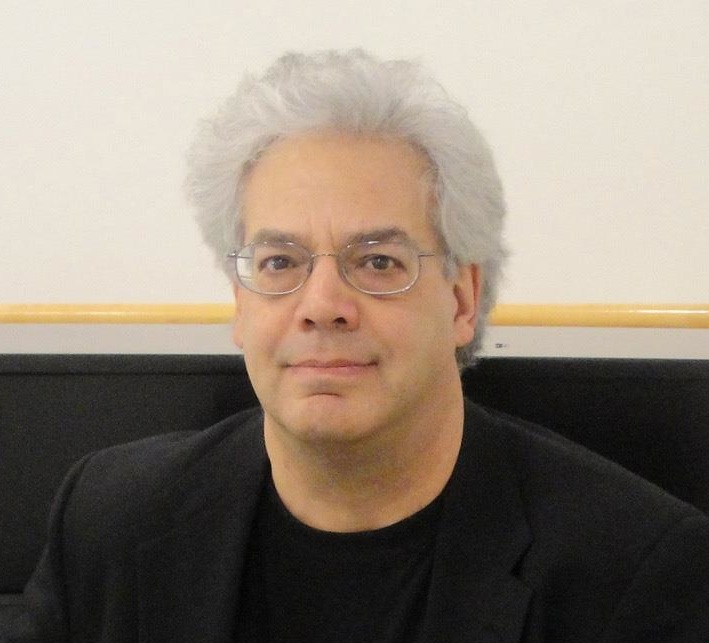 |
Composer Bruce Lazarus's music includes pieces for piano, solo voice, |
Giants of Science features two songs by Bruce Lazarus:
- Jane with the Chimps (world premiere) - British primatologist, ethologist, and anthropologist Jane Morris Goodall (1934 - ) is considered to be the world's foremost expert on chimpanzees. One of cartoonist Gary Larson's more famous Far Side cartoons shows two chimpanzees grooming. One finds a blonde human hair on the other and inquires, "Conducting a little more 'research' with that Jane Goodall tramp?" Goodall liked the cartoon, and all profits from sales of a shirt featuring this cartoon go to the Jane Goodall Institute.
[performance audio/performance video/demo] - Annie Jump Cannon: Celestial Pioneer (world premiere) - American astronomer Annie Jump Cannon's (1863 - 1941) cataloging work was instrumental in the development of contemporary stellar classification. With Edward C. Pickering, she is credited with the creation of the Harvard Classification Scheme, which was the first serious attempt to organize and classify stars based on their temperatures. She was nearly deaf throughout her career.
[performance audio/performance video/demo]
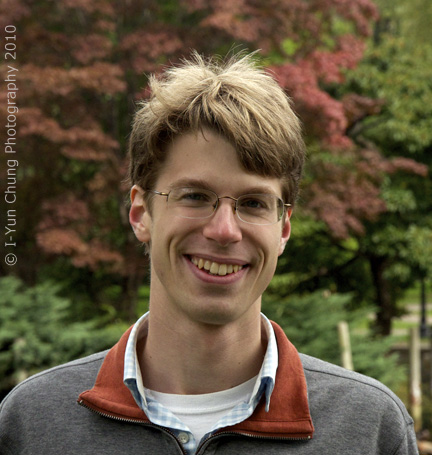 |
Tim Maurice is a classically trained musician working |
Giants of Science features one song by Tim Maurice:
- Down to Earth (world premiere) - Neil deGrasse Tyson (1958 - ) is an American astrophysicist, cosmologist, and director of the Hayden Planetarium in New York City. As the foremost science communicator of our day, he stands on the shoulders of Carl Sagan, who invited Tyson to visit Cornell when he was applying to be an undergraduate there. Tyson recalls, "I already knew I wanted to become a scientist. But that afternoon, I learned from Carl the kind of person I wanted to become."
[performance audio/performance video/demo]
 |
Lauren Mayer is a California-based, award-winning writer and |
Giants of Science features three songs by Lauren Mayer:
- Beauty and a Brain - This 1940s torch song is an homage to Austrian-American actress and inventor Hedy Lamarr (1914 - 2000). Her frequency-hopping system is an important element in today's wireless communication systems, and in 2014 she was inducted into the National Inventors Hall of Fame.
[performance audio/performance video/demo]
- Eureka! (world premiere) - A commemoration, in the style of a Greek folk song, of the accomplishments of Archimedes (c. 287 BC – c. 212 BC), the great Ancient Greek mathematician, physicist, engineer, inventor, and astronomer.
[performance audio/performance video/demo] - Copernicus & Kepler (world premiere) - A 1950s rock number acclaiming the work of two giants of astronomy: Polish mathematician and astronomer Nicolaus Copernicus (1473 - 1543), who first proposed that the planets orbited the sun; and German mathematician and astronomer Johannes Kepler (1571 - 1630), who derived the laws of planetary motion.
[performance audio/performance video/demo]
»



